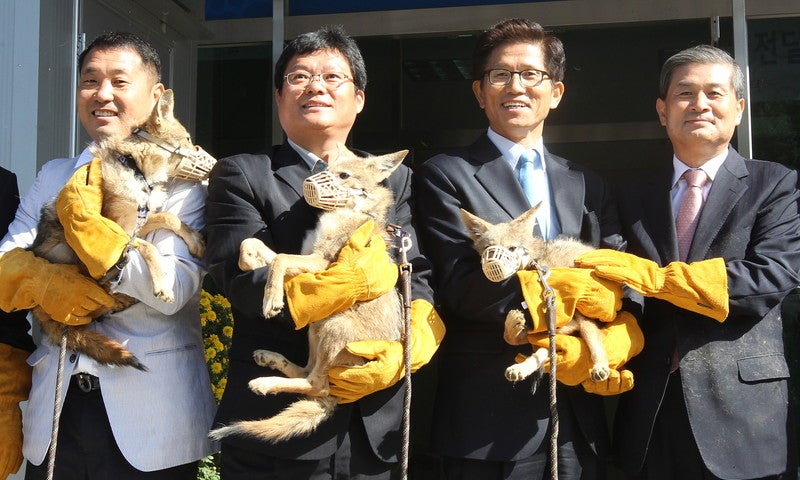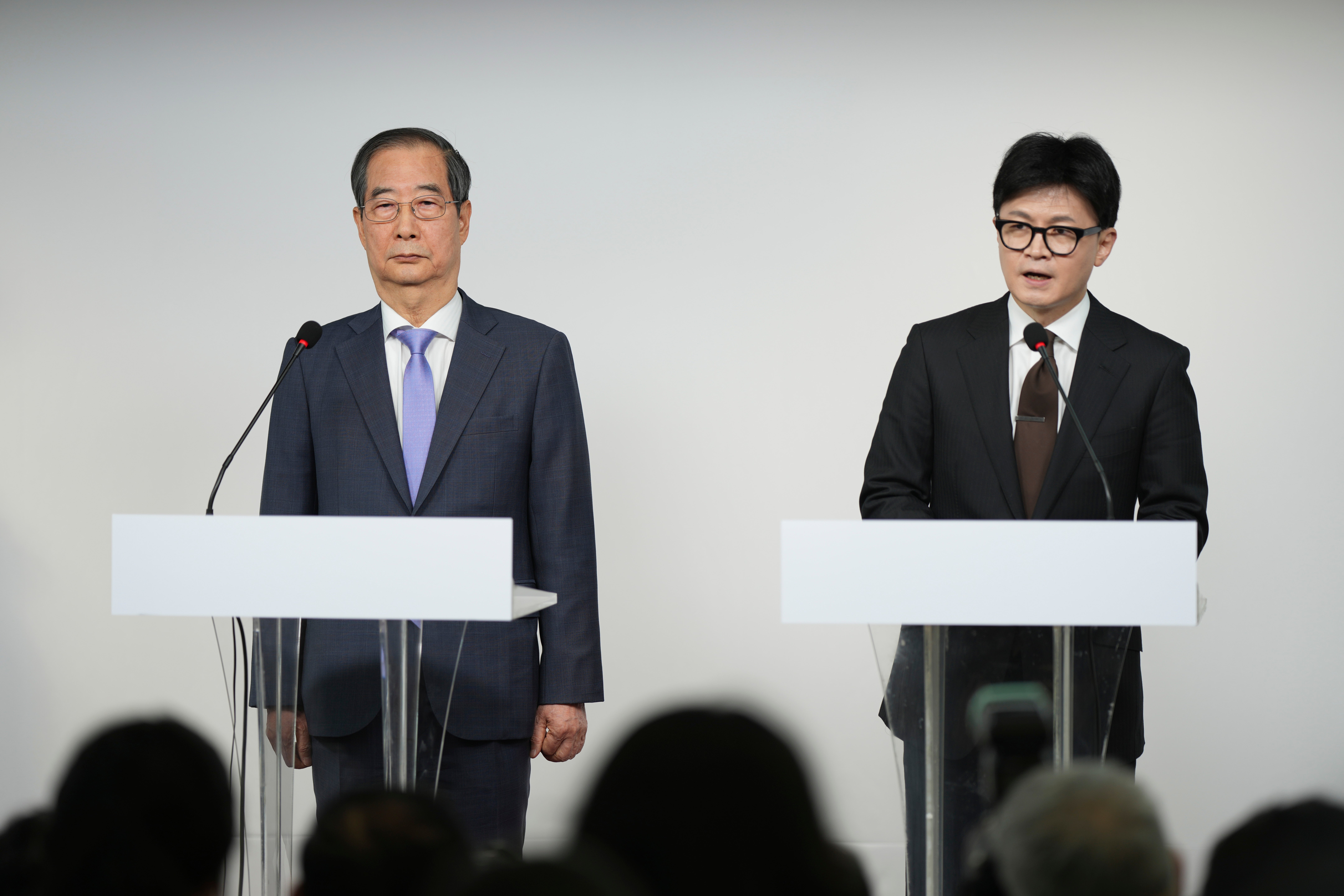ARTICLE AD BOX
Former Labor Minister and staunch conservative Kim Moon Soo won the presidential nomination of South Korea’s main conservative party, facing an uphill battle against liberal front-runner Lee Jae-myung for the June 3 election.
Observers say Mr Kim will likely try to align with other conservative forces, such as former prime minister Han Duck-soo, to prevent a split in conservative votes and boost prospects for a conservative win against Mr Lee.
In a party primary that ended Saturday, Mr Kim won 56.5 per cent of the votes cast, beating his sole competitor, Han Dong-hun, the party said in a televised announcement. Other contenders have been eliminated in earlier rounds.
“I’ll form a strong alliance with anyone to prevent a rule by Lee Jae-myung and his Democratic Party forces. I’ll push for that in a procedure and method that our people and party members accept, and I’ll ultimately win,” Mr Kim said in his victory speech.
The 3 June election is meant to find a successor to conservative president Yoon Suk Yeol, a People Power Party member who was impeached by the opposition-controlled National Assembly in mid-December and dismissed by the Constitutional Court in early April over his ill-fated imposition of martial law.

Mr Yoon’s impeachment is a major source of feuding at the PPP and a hot topic at the party’s primary.
Mr Kim, who served as labor minister under Mr Yoon, has opposed his parliament impeachment, though he said he disagreed with Mr Yoon’s decision to declare martial law on 3 December. Mr Kim gained popularity among hardline PPP supporters after he solely defied a demand on 11 Dec by an opposition lawmaker that all Cabinet members stand up and bow in a gesture of apology for Mr Yoon’s martial law enactment at the National Assembly.
Han Dong-hun, Mr Kim’s main contender in the PPP’s primary, served as Mr Yoon’s first justice minister. Mr Han leads a reformist yet minority faction at the PPP who joined the liberal opposition in voting to overturn Mr Yoon’s martial law decree and later impeach him. Without the support of Mr Han’s faction members, an opposition-led impeachment motion on Mr Yoon couldn’t have passed through the National Assembly because opposition parties were eight votes short of a two-thirds majority to approve it.

Shin Yul, a politics professor at Seoul’s Myonggi University, said that public awareness of the conservatives’ campaign could have risen more sharply if Mr Han had won, as he could have appealed to moderate, swing voters more.
Mr Kim, 73, was originally a prominent labor activist in the 1970-80s but joined a conservative party in the 1990s. Mr Kim recently said he gave up his dream to become “a revolutionist” after observing the collapse of communist states. He has since served as a governor of South Korea’s most populous Gyeonggi province for eight years and a member of the National Assembly for three terms.
Mr Kim has said that if elected, he would push to fight corruption, overhaul financial regulations, reform pension systems and increase government spending on Artificial Intelligence infrastructure. He said he would maintain a solid military alliance with the US and introduce nuclear-powered submarines as a way to increase deterrence against North Korean nuclear threats.

Mr Lee, who won the Democratic Party nomination last Sunday, is the clear favorite to win the election. But Mr Lee’s campaign suffered a setback due to a recent Supreme Court decision to order a new trial on his election law charges. It’s unclear if he will face a court sentence that requires the suspension of his campaign before the 3 June vote, but he’ll likely grapple with an intense political offensive by his election rivals.









 English (US) ·
English (US) ·